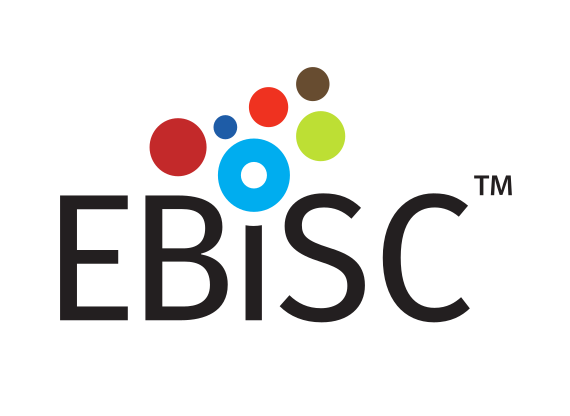If the cells you would like to access are currently listed as unavailable or
you would like information on local partners in USA, Australia, New Zealand or Japan who can support order and delivery,
please get in touch via
Contact@EBiSC.org.
EDi018-A
RCi211
iPSC line
A CLIP contains information about a cell line including any
specific third party obligations relating to, for example,
licensing obligations or the donor consent which affect the
use of the cell line.
The EBiSC Access and Use Agreement must be completed along with an individual
Cell Line Information Pack for each line. Complete the EAUA and send to Contact@EBiSC.org
for countersignature. The EAUA must be fully signed before proceeding with your order.
To receive the Certificate of Analysis, please contact us.
A batch specific Certificate of Analysis will be available to
download once you receive your EBiSC iPSC line.
General#
Cell Line |
|
| hPSCreg name | EDi018-A |
| Alternative name(s) |
RCi211
|
| Cell line type | Human induced pluripotent stem cell (hiPSC) |
| Similar lines |
|
Provider |
|
| Depositor | University of Edinburgh (ED) |
| Distributors |
EBiSC
|
External Databases |
|
| hPSCreg | EDi018-A |
| BioSamples | SAMEA4771918 |
| Cellosaurus | CVCL_LE79 |
| Wikidata | Q54832007 |
General Information |
|
| Publications | View all related publications on hPSCreg (1) |
| This EBiSC line can be used for: |
Yes
Research use: allowed
Clinical use: no
Commercial use: no
|
Donor Information#
General Donor Information |
|
| Sex | female |
Phenotype and Disease related information (Donor) |
|
| Diseases | A disease was diagnosed.
|
| Family history | From multiple affected family multiple affected by bipolar and major massive depressive disorder |
Donor Relations |
|
| Other cell lines of this donor |
|
External Databases (Donor) |
|
| BioSamples | SAMEA4772668 |
hIPSC Derivation#
General |
|
| Source cell type |
A connective tissue cell which secretes an extracellular matrix rich in collagen and other macromolecules. Flattened and irregular in outline with branching processes; appear fusiform or spindle-shaped.; These cells may be vimentin-positive, fibronectin-positive, fsp1-positive, MMP-1-positive, collagen I-positive, collagen III-positive, and alpha-SMA-negative.
|
Reprogramming method |
|
| Vector type | Non-integrating |
| Vector | Sendai virus |
| Genes | |
Vector free reprogramming |
|
Other |
|
| Derived under xeno-free conditions |
No |
| Derived under GMP? |
No |
| Available as clinical grade? |
No |
Culture Conditions#
The following are the depositor culture conditions, they do not refer to any specific batch.
| Surface coating | Matrigel/Geltrex |
| Feeder cells |
No |
| Passage method |
Enzyme-free cell dissociation
EDTA
|
| O2 Concentration | 20 % |
| CO2 Concentration | 5 % |
| Medium |
Essential 8™
|
Characterisation#
Analysis of Undifferentiated Cells
| Marker | Expressed | Immunostaining | RT-PCR | Flow Cytometry | Enzymatic Assay | Expression Profiles |
| SSEA-1 |
No |
|
||||
| SSEA-4 |
Yes |
|
||||
| TRA 1-60 |
Yes |
|
||||
| POU5F1 (OCT-4) |
Yes |
|
Microbiology / Virus Screening |
|
| HIV 1 | Negative |
| HIV 2 | Not done |
| Hepatitis B | Negative |
| Hepatitis C | Negative |
Genotyping#
Karyotyping (Cell Line) |
|
| Has the cell line karyotype been analysed? |
Yes
No autosomal or sex chromosome aneuploidies were detected
Passage number: 18
Karyotyping method:
BACS-on-Beads
|
Other Genotyping (Cell Line) |
|
| Is there genome-wide genotyping or functional data available? |
Yes
Whole genome sequencing
https://ega-archive.org/studies/EGAS00001002755 This cell line has undergone WGS using the Illumina HiSeq X platform at 30x coverage. Fastq files are stored at the European Genome Archive, users can apply for access to this data by submitting an application form to the EBiSC Data Access Committee https://ega-archive.org/dacs/EGAC00001000768 |
